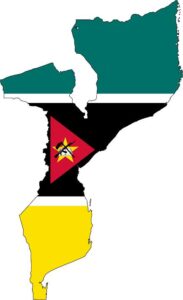 The global decline in oil demand, and cut in production by oil-producing countries have taken their toll on various African countries. Algeria had already slashed its budget twice this year, Nigeria has reduced its fuel pump price twice, and now, Mozambique is the latest country reacting to the effects of the pandemic.
The global decline in oil demand, and cut in production by oil-producing countries have taken their toll on various African countries. Algeria had already slashed its budget twice this year, Nigeria has reduced its fuel pump price twice, and now, Mozambique is the latest country reacting to the effects of the pandemic.
The Mozambican government announced a reduction of about five per cent for petrol and diesel, taking effect from Thursday, 21st May, 2020. The price of a litre of petrol was cut from 67.49 meticais to 64.22 meticais – a 4.8 per cent reduction, while a litre of diesel was cut from 63.58 meticais to 60.16 meticais, reflecting a 5.4 per cent reduction.
The National Director of Hydrocarbons and Fuels, Moises Paulino, said at a press conference held on Wednesday that the price cuts were justified by the fall in the global demand for refined fuel, caused by the effects of the COVID-19 pandemic.
According to him, there has been a collapse in world oil prices. The average price of a barrel of crude fell to $55 from $63 between January and February, and consistently fell after then. He stated that the new prices were calculated on the basis of the costs of the fuel unloaded at Mozambican ports between late January and early March. He added that the fall in world prices was, to an extent, counterbalanced by the decline in the value of the country’s currency, the metical, which has been depreciating against the US dollar for the better part of this year.
The general director of Mozambique’s fuel import agency Imopetro, Joao Macandza, also told reporters that the fuel tanks in the ports still contained products that were purchased at January and February prices. “Orders made in April and May at a much lower price (around 31 dollars a barrel) cannot be unloaded at the ports, because there is no space for them in the tanks in Maputo, Matola, Beira, Nacala and Pemba.” The total Mozambican fuel storage capacity in the ports is reportedly about 1.15 million cubic metres.
The fall in the price of oil reached a historical negative in April, and several oil-producing countries (OPEC+ and allies) agreed to cut daily production by 10 million barrels per day, with Saudi Arabia (one of the world’s largest oil producer) further cutting its daily production and urging other oil-producing countries to do the same. Although there seems to have been promising signs in the price of oil globally, the uncertainties of the pandemic has caused no one to have a cause to rejoice yet.